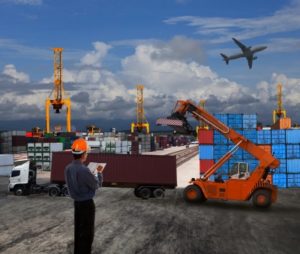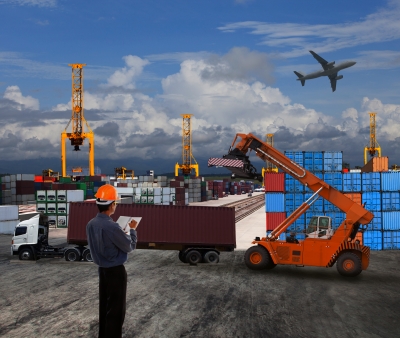
Business groups urged government to impose a moratorium on port fees to address supply chain challenges and sustain business operations during the enhanced community quarantine (ECQ).
In a joint resolution the groups pushed for, among others:
- a moratorium on demurrage, detention, surcharges, and other fees imposed on cargoes stuck at ports;
- extension of free storage period from five to 10 days;
- automation improvements at the Bureau of Customs (BOC);
- lifting of the truck ban/number-coding since few trucks are operating during ECQ. (It must be noted though that both schemes have been lifted since middle of March.);
- adoption of the Super Green Lane process for shipments bound for areas administered by the Philippine Economic Zone, and Clark and Subic Freeport zones.
- implementation of Executive Order (EO 172 s. 2014) assigning Subic and Batangas ports as extension ports to Manila in cases of port congestion and emergency situations, similar to what was done during the 2014 Manila port congestion;
- shipping lines having sufficient container yard space for empty containers; and
- the BOC to expedite accreditation and activation of inland container depots.
President Rodrigo Duterte on April 24 extended the ECQ until May 15, the second such extension from the previous April 30.
READ: Clamor grows for waiver of port fees, extended free storage
“In these trying times, when the government is implementing a socio-economic amelioration program to provide subsidies and assistance to the people, increasing transport logistics efficiency and reducing cost can also help the business sector and consumers at large,” the groups, which include various foreign chambers of commerce, said.
They recommended implementing a moratorium on demurrage/detention fees, port congestion surcharges, and other penalties imposed on cargoes/shipments stuck at the port due to the slow issuance of delivery order (DO) by shipping lines, bank processing, customs clearance, and to “apply this retroactively to all shipments affected.”
They noted international shipping lines currently impose port congestion surcharges of US$1,400 per reefer container.
Foreign liners, they said, are also imposing demurrage charges, ranging from P1,400 to P2,800 per forty-footer dry container, and P2,800 to P3,200 per day for reefers, plus other penalties.
As early as April 3, 2020, the Export Development Council (EDC) already wrote a letter to the Philippine Ports Authority (PPA), Department of Finance (DOF), and Department of Transportation (DOTr) requesting that demurrage fees be waived. Only DOTr responded, suggesting that the proposal be elevated to the Inter-agency Task Force for the Management of Emerging Infectious Diseases (IATF).
The business groups also sought an extension on the free storage period from five days to 10 days to lessen storage fee costs. They said shippers currently pay storage fees to port terminal operators, after the free storage period, of P962 to 1,443 per day for a forty-footer dry container, and P192.50 per hour for reefers.
In addition, they appealed for DOF to sign the 2019 joint administrative order (JAO) intended to regulate origin and destination charges imposed by foreign carriers, and to eliminate port congestion. DOF did not sign the JAO; only Department of Trade and Industry (DTI) and DOTr did.
In July 2019, DTI announced that instead of a JAO, an EO would instead be pushed to give “more teeth” to the proposal to regulate local charges of foreign shipping lines. And then in January 2020, DTI said it was no longer drafting an EO but a bill.
READ: EO eyed to regulate fees of international shipping lines
READ: DTI bill regulating foreign carriers’ charges may be ready by end Jan—trade exec
Customs automation
In order to attain port efficiency, the groups pushed for automation at customs. “At this time when social distancing and less/no face-to-face dealings have become the ‘norm’, automation and the role of ICT have all the more become critical. While other countries (like us) are battling COVID-19, their port operations have remained efficient (unlike us) due to their fully-automated systems and processes,” they said.
“We do not know when the lockdown will be lifted. Therefore, there is an urgent need to improve the automation process at the BOC. For a start, something drastic must be done to address the downtime arising from inefficient servers of the BOC. Delay or failure to process documents online is a critical factor behind port congestion.”
Correcting conflict of interest
Another suggestion was to rescind, through the issuance of an EO, Letter of Instruction 1005-A s. 1980, which grants PPA a share in cargo-handling revenues. This “corrects the conflict of interest where the regulator can increase rates not based on merit or financial justification but based on the benefit that accrues to it.”
The groups explained: “While this recommendation admittedly will cause a reduction in PPA’s revenue, we have to put a stop to this policy of sharing from cargo handling revenues (10-20%) which unnecessarily increases logistics cost. The negative impact [damage] such a policy brings to the economy is definitely greater than whatever the government does with the revenue it generates.”
They said this will cut transport logistics costs for consumers, manufacturers, farmers/fisherfolks, exporter and importers. Cargo handlers/port workers will not be affected “because it is the government’s share that will be given up.”
This recommendation has been put forward previously by various other groups to avoid conflict of interest in PPA’s regulatory and commercial functions in managing and operating ports in the Philippines.
Supply chain impact assessment
The groups said its recommendations can be used for National Economic and Development Authority’s (NEDA) Supply Chain Regulatory Impact Assessments (RIA) and Supply Chain Analysis Dashboard.
The two NEDA projects, already approved by the IATF, seek to address supply chain concerns during the ECQ period.
READ: IATF approves NEDA proposals to address supply chain woes
The conduct of a RIA on COVID 19-related issuances by a technical working group to be led by the Anti-Red Tape Authority was also proposed.
“A number of policy and regulatory issuances both at the national and local levels has caused confusion/unnecessary delays and hampered the transport of goods,” they said.
The RIA will ensure rules are consistent, and contribute to efficiency and lower costs.
The joint statement was signed by the Philippine Chamber of Commerce and Industry, Philippine Exporters Confederation Inc., Supply Chain Management Association of the Philippines, EDC, American Chamber of Commerce of the Philippines, Australia-New Zealand Chamber of Commerce of the Philippines Inc., Canadian Chamber of Commerce of the Philippines, European Chamber of Commerce of the Philippines, Japanese Chamber of Commerce and Industry of the Philippines Inc., Korean Chamber of Commerce of the Philippines Inc., Federation of Filipino Chinese Chambers of Commerce and Industry Inc., Philippine Association of Multinational Companies Regional Headquarters Inc., Semiconductor and Electronics Industries in the Philippines Foundation Inc., and Management Association of the Philippines. – Roumina Pablo





